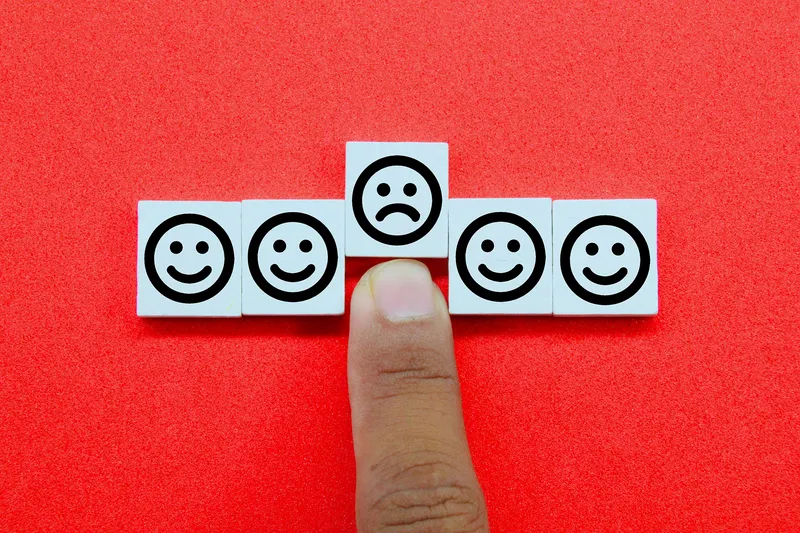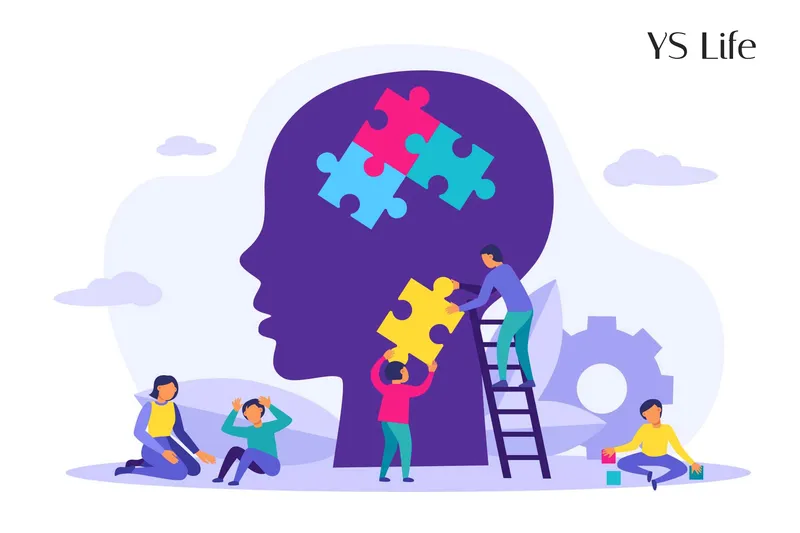Toxic positivity: why trying to be happy all the time makes us sad
Toxic positivity is amplified by social media and self-help books. But chasing ideal happiness as a perpetual state is the very cause of our suffering.
Do you look at your social media feed and wonder how everyone seems so happy and optimistic all the time? They are always chasing their goals, living their best life, and having a great time. Every day seems an adventure to them, waiting to be explored.
When you look for life advice, quotes like ‘Live, Laugh, Love’ surface. So, why is it that when you try to embody these tips to prolong happiness, you start to feel the opposite?
We live in a time where optics can easily sway the masses. This constant push towards maintaining a cheerful demeanour regardless of our true feelings is known as ‘toxic positivity’. It is a cultural phenomenon amplified by social media and self-help books that often promote an ideal of happiness as a perpetual state. However, chasing a fleeting emotion is the very cause of our suffering.
The rise of love and light culture
Heavy terms such as ‘vibrating on a frequency of unconditional love’ are often misunderstood for experiencing only the higher spectrum of emotions–like joy or contentment. Sadly, chasing happiness too far can make you feel inadequate, as you are unable to hold on to that emotional state.
Unrealistic expectations of optimism can also result in a loss of empathy. You may dismiss or invalidate genuine emotional experiences, creating a culture where only positive emotions are valued, while negative emotions are seen as signs of weakness.
This constant emphasis stress on positivity is decreasing our emotional intelligence as a collective, making it harder for us to cope with life’s inevitable ups and downs.
Let’s understand why accepting the full spectrum of emotions is vital for our mental health and well-being.
The paradox of perpetual positivity
Constantly chasing a happy state and pushing down those not-so-cheerful feelings might seem like a good strategy, but it can backfire. Imagine trying to hold a beach ball underwater; it takes a lot of effort, and, when you finally let go, it pops up with even more force.
Similarly, when we keep pushing our real emotions down, they just build up and can bubble over as anxiety, sadness or dissatisfaction.

Source: Shutterstock
Studies have shown that emotional suppression not only makes us feel worse in the long run but also leaves us feeling stuck and unhappy. Denying our true emotional experiences limits our ability to process and resolve these feelings—potentially stacking up unresolved emotional tension. This can not only diminish our emotional authenticity but also impair our overall mental health, exacerbating stress and depression over time.
Forcing happiness as the emotional baseline sets you up for a steeper fall. Hence, we face the paradox of perpetual positivity. Trying to feel untouchable by negative emotions causes us to be emotionally stunted and fragile.
The only solution is to face the waves of emotions head-on and establish a balance.
The beauty of human emotions
Did you know that the average human has about 400 emotional experiences every day? And not all of them induce feelings of joy, abundance, and happiness.
Human emotions are intricately complex and serve crucial roles in our survival and social interactions. They range widely from joy and love to anger, disgust, and sadness, each carrying vital information about our experiences and environment. These emotional signals help us traverse social situations and make critical decisions that can affect our safety and well-being.

Experiencing the full spectrum of emotions isn’t just normal; it is critical for honing emotional intelligence, character development, and personal growth. By facing and processing negative emotions, we learn to cope more effectively with stress and adversity, leading to greater psychological flexibility and a deeper understanding of ourselves and others.
For instance, look at the function of tears in expressing emotions like sadness, anger, pain and anxiety. Studies show how crying can lower stress and release cortisol through tears, helping you decompress after an overwhelming experience. What’s more, crying can help you regulate your nervous system and cortisol levels, all while reducing toxins in your blood.
This emotional diversity equips us to handle life’s challenges and thrive in times when evolution is at its peak.
Learning healthy emotional balance
To cultivate emotional balance, it’s vital to lean into your feelings with courage and curiosity. Emotions are only messengers. Acknowledging every emotion, from joy to sorrow, is an important indicator.
Here are some tips to help you manage your emotional spectrum:
- Validate your feelings: Recognise and accept your emotions without judgement. Whether you are ecstatic or overwhelmed, understanding that your feelings are valid is the first step towards emotional resilience.
- Express, don’t suppress: Find healthy outlets for your emotions. This could be talking things out with someone you trust, writing in a journal, or engaging in creative activities like painting or music. Expression is key to processing your emotions, not letting them bottle up.
- Mindfulness practices: Engage in mindfulness techniques such as meditation or deep breathing exercises. These practices help you stay present with your feelings, reducing the intensity of negative emotions.
- Educate yourself on toxic positivity: Learn to recognise signs of toxic positivity; human beings aren’t meant to be happy all the time. Stop trying to cover your disappointment with a sunny outlook. Sometimes, there is no brighter side to things, and that is alright. Allow an emotion to exist without trying to morph it into a palatable version.
Stepping into authenticity
How can we become better than falling for toxic positivity trends? It starts with understanding the fragility of our existence and holding space for our experiences.
Life gives us plenty of joyful moments and memories to celebrate. But it is also marked by the universal truths of rejection, loss and failure. Think of life as a journey where experiencing the full spectrum of emotions leads to greater maturity, tolerance and empathy.
This profound quote surmises the colourful plane of emotions: This too shall pass.
So, when you have a good day, bask in the sunshine of happiness and bliss; express gratitude. When the clouds arrive and give you a rainy day, sit with them; try to understand the lessons in such moments. Just like our planet doesn’t have 365 sunny days, we’re bound to experience some storms too. Have compassion for yourself and others’ emotions.
Forget about perpetual happiness; moving with grace and resilience is the greatest win!
The author practises in the field of holistic nutrition and integrative and lifestyle medicine. He is the founder of the You Care Wellness Program.
Edited by Swetha Kannan
(Disclaimer: The views and opinions expressed in this article are those of the author and do not necessarily reflect the views of YourStory.)







